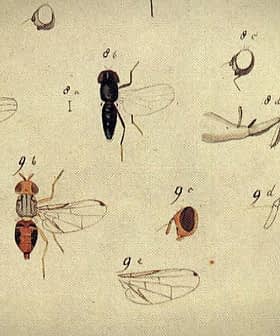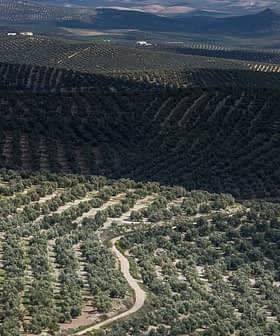 9.2K reads
9.2K readsNews Briefs
Olive Oil Production Expected to Fall Below 1M Tons in Spain

Spain’s olive oil production is expected to increase from last year’s historic low but will not exceed 1 million tons in the 2023/24 crop year due to a historic drought, with rain improving conditions for the 2024/25 harvest. Despite slightly lower yields, olive oil quality is expected to be higher this year, leading to rising prices and concerns about potential shortages, prompting government efforts to stabilize prices and support affected farmers with aid payments and insurance subsidies.
Olive oil production in Spain will not exceed 1 million tons in the 2023/24 crop year, according to Luis Planas, Spain’s acting minister of agriculture, fisheries and food.
However, he said production would almost certainly surpass the historic low of 663,000 tons produced in 2022/23, 54 percent below the average of the previous four years. Planas added that it was still too early to provide more precise predictions.
Officials and producers across the country have blamed the historic drought engulfing the Iberian Peninsula for the poor harvest last year and the low expectations for this year.
See Also:2023 Harvest UpdatesRainfall in recent weeks has slightly improved the situation in the olive groves, but many producers warned that it came too late to save this harvest, instead improving conditions for 2024/25.
“Above all, this water will be used to prepare next year’s harvest,” Francisco Vañó, owner of Jaén-based Castillo de Canena, told El Mundo.
While some producers in Andalusia, the southern autonomous community responsible for most of Spain’s olive oil production, have already started harvesting, the crop year officially begins on October 1st.
Among the producers in southern Spain already transforming olives into olive oil is Málaga-based Finca La Torre. Company manager Víctor Pérez told Oleo Revista that, due to the drought, this year’s harvest started two weeks earlier than usual.
He expects to harvest 350 tons of olives, 12 percent less than last year, and produce about 60 tons of olive oil. Despite a lower yield, he said the drought favored higher quality.
“The olives have less moisture and, during the oil production process, it will lose fewer antioxidants,” he said. “Thus, the resulting extra virgin olive oil will be more powerful, bitter and spicy, of excellent quality and healthier due to the high polyphenol content that we expect.”
While recent rain means that olive oil prices at origin have fallen slightly from record highs – extra virgin olive oil dipped from €8.35 per kilogram on September 14th to €8.19 at the time of writing – experts expect the upward trend to continue.
Juan Vilar, a Jaén-based strategic consultant for the olive oil sector, told Diario de Sevilla that expectations of an unprecedented second-consecutive historically low harvest mean olive oil prices will continue to climb and some consumers would cut back on purchases. However, he said previously-feared shortages are unlikely.
“At no time will the supermarket shelves be without supplies,” he said. “There will be a series of people who will not be able to afford the purchase of olive oil and therefore will stop consuming it or will consume it to a lesser extent.”
“I wouldn’t be surprised if certain oils start selling in supermarkets for almost €12,” Vilar added.
The scarcity of olive oil and concerns about steadily rising prices resulted in Nadia Calviño, the first vice president and minister of economic affairs, calling for measures to stabilize prices.
She urged all stakeholders in the olive oil supply chain to collaborate in controlling prices, as olive oil is a staple in many Spanish households.
The Spanish government plans to invest €11.8 billion to improve water infrastructure by 2027 to address Andalusia’s increasingly hot and dry climate. This investment will focus on desalination, recycling wastewater and promoting efficient water use through infrastructure improvements.
Additionally, €3.06 billion will be allocated to digitalization, promoting new technologies and data for water and drought management.
Along with olive growers, the drought has profoundly impacted the country’s entire agricultural sector. The government anticipates a record-high number of agricultural insurance claims will be made in 2023.
Compensation is expected to exceed €1 billion for the year, with more than 90 percent of the drought-related claims already paid in August. However, many olive growers are set to miss out after previous research found that only 4.5 percent of olive groves are covered by crop insurance in the country.
The government has implemented measures to support farmers impacted by the drought, including €636 million of direct aid payments, insurance subsidies and tax cuts for producers who lose 20 percent or more of their crop.









